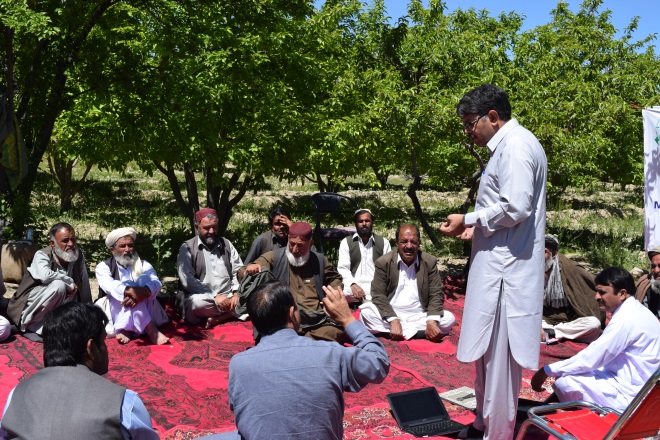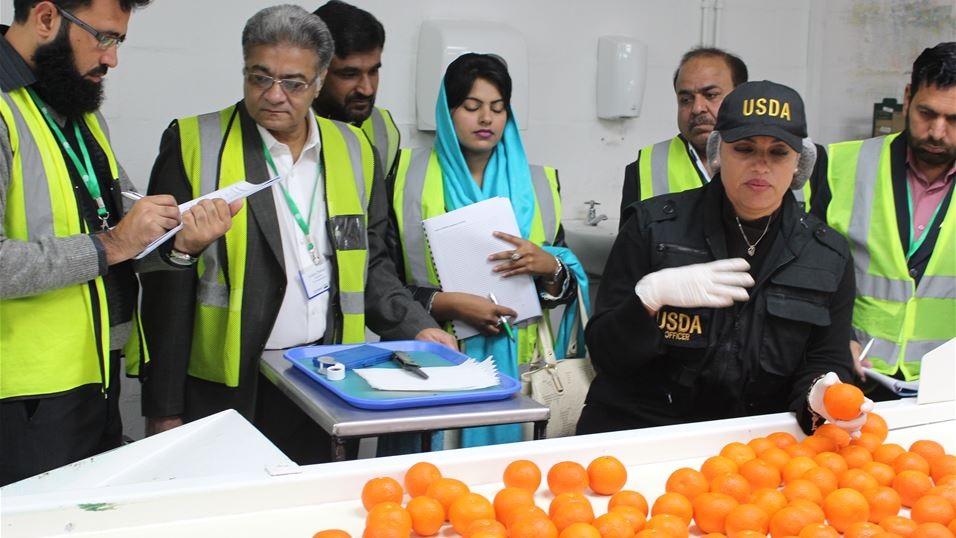CABI on cotton (part 2): The famous farmer and The compost king
In part one of ‘CABI on cotton’ we heard about 100 Pakistan cotton farmers, as part of CABI’s Better Cotton Initiative (BCI), attending a seminar on integrated pest management. In part two, we hear a couple of success stories from farmers on how taking part in BCI is helping them produce better cotton.
CABI on cotton (part 1): Farmer seminar on pest management
Cotton. How many of us come into daily contact (literally) with this wondrous natural fiber? Used in a huge array of materials, from the obvious clothing and cotton wool buds, to the less obvious products like cottonseed oils used to make soap, margarine, emulsifiers, cosmetics, pharmaceuticals, rubber and plastics, the cotton plant is woven into…
‘Digging deep’ to strengthen the potato value chain in Pakistan
CABI in Pakistan, under its ACIAR-funded ‘Strengthening Vegetable Value Chain in Pakistan’ (SVVCP) project, is committed to improving the value chain of vegetables for smallholder farmers so they can improve their livelihoods. Dr Babar E. Bajwa, Project Leader, reports on the progress being made so far… Potato is a major crop in Pakistan with great…
Embracing ‘stakeholder interaction’ for better business strategy and integration in Pakistan
Dr Umair Safdar, Development Communications Executive at CABI in Rawalpindi, Pakistan, looks at ‘stakeholder interaction’ for better business strategy and integration in Pakistan through the cluster-based Agricultural Transformation (CDBAT) Project… Stakeholders strongly influence a project’s success, particularly for complex projects with heterogeneous stakeholders. Therefore, understanding their influence is essential for project management and implementation.
PRMP in Pakistan: perspectives of government officials of Balochistan
By Dr Umair Safdar, Development Communication Executive, CABI Pakistan A Phytosanitary Risk Management Program (PRMP) in Pakistan is implementing a biological control program for pests of concerns in the Sindh, Gilgit and Skardu regions – with the aim of helping farmers grow more and lose less to invasive species. In Balochistan, PRMP has established a Biological…
Empowering marginalized communities: Success story of Mr Maula Dad, an apple grower from Balochistan
Balochistan province is famous for producing apples, contributing more than 80% to the total apple production in Pakistan, and therefore has a significant impact on the household income of farmers in the region. However, apples are also prone to infestation by a number of different pests, of which the apple codling moth (Cydia pomonella) is of…
Overcoming cotton insect/pests through Natural Enemies Field Reservoir (NEFR) technology in Pakistan
Cotton is one cash crop of Pakistan which is attacked by a number of pests including sucking (aphid, jassid, white fly) piercing (mites), cutting (white ant) and chewing (boll worms). Izhar Nabi Sehto of Kurkuli village, district Sanghar of Sindh province, said the only option that comes readily to the farmer’s mind when looking for a control…
Phytosanitary Risk Management Programme – transforming livelihoods in Pakistan
Meet Rozina Babar, she is one of thousands of smallholder farmers in Pakistan whose livelihoods are threatened by agricultural pests and diseases that can devastate crops and ultimately have a severe impact on food security and profitability. However, thanks to the CABI-led Phytosanitary Risk Management Programme – funded by USAID-USDA and working with partners including…
Building capacity for greater food security in Pakistan
As part of CABI’s mission to help farmers grow more and lose less, we have been funded by USAID – via the United States Department of Agriculture (USDA) – to help Pakistan improve its sanitary and phytosanitary (SPS) systems and therefore open up its fruit and vegetables to more high-end global markets that were previously untapped. Currently these products only contribute 13% of the country’s export but improvements to its SPS capabilities could see this number rise significantly.
Low salt diets could allow iodine-deficiency diseases to re-emerge
Salt has been used for thousands of years to flavor & preserve food BUT reliance on fast food, biscuits and tinned goods, with their hidden salt content, has created for us a high salt diet and with it an alarming rise in cardiovascular disease. Reducing our salt intake, by working with food industry and educating…






